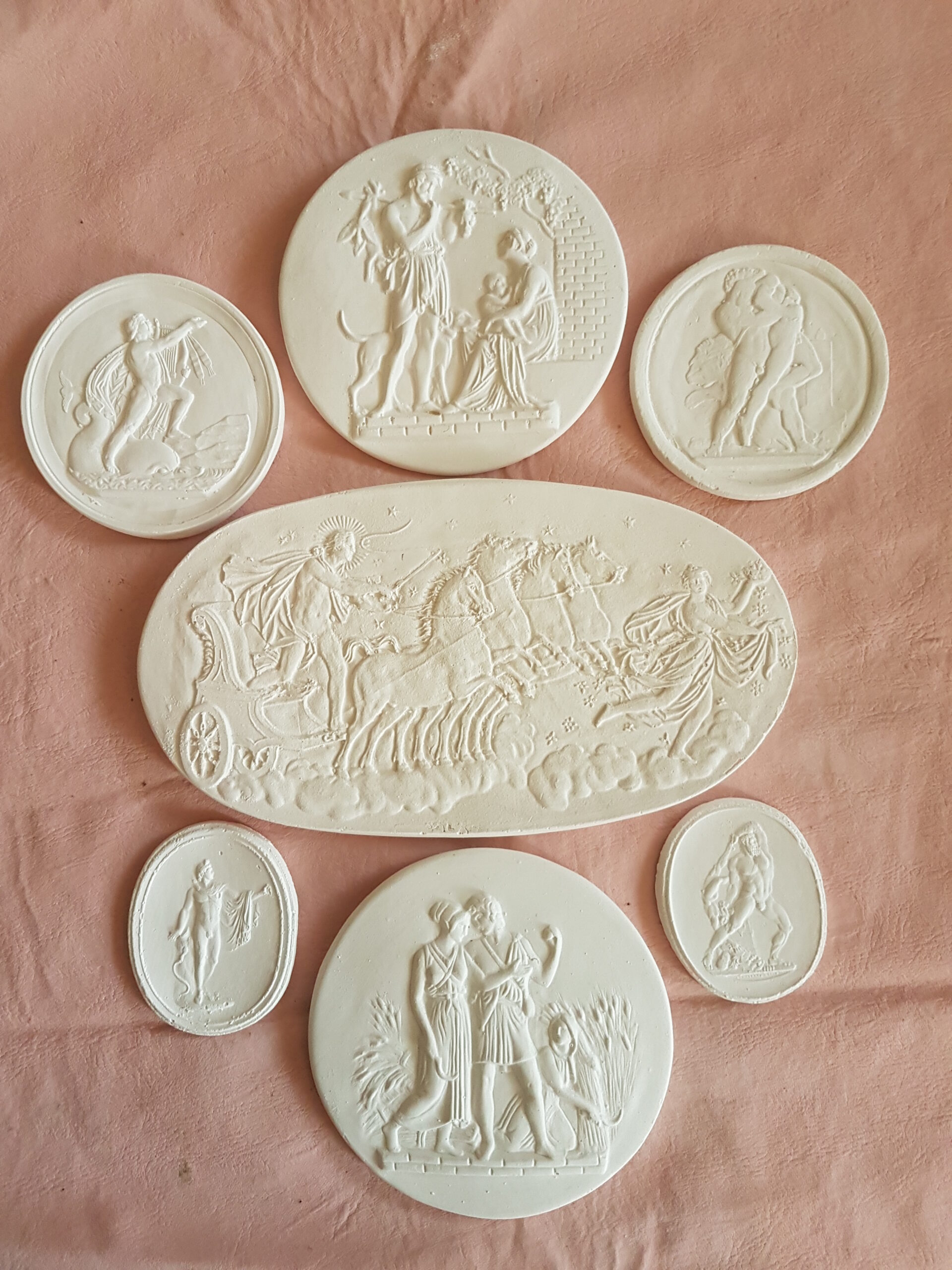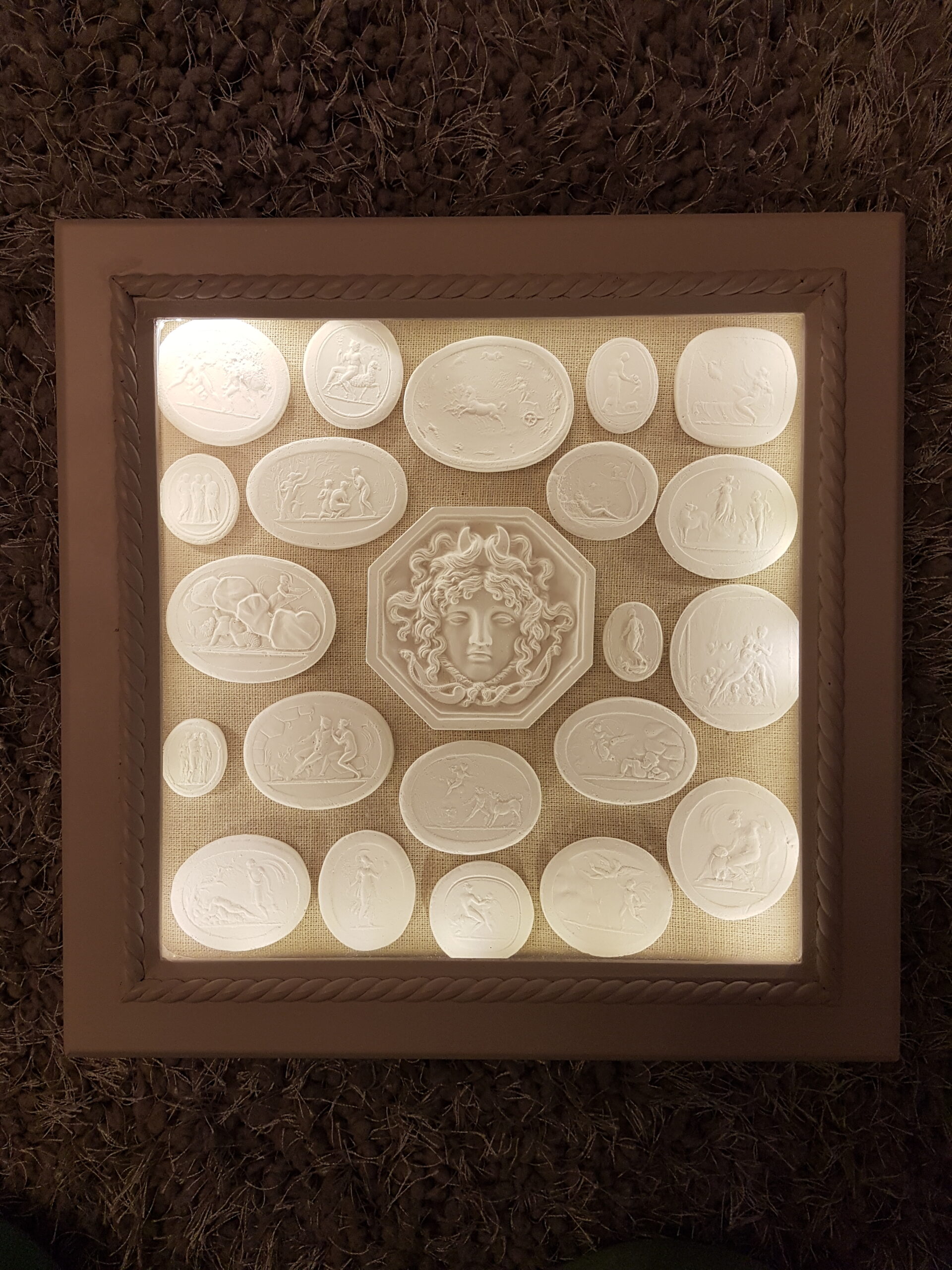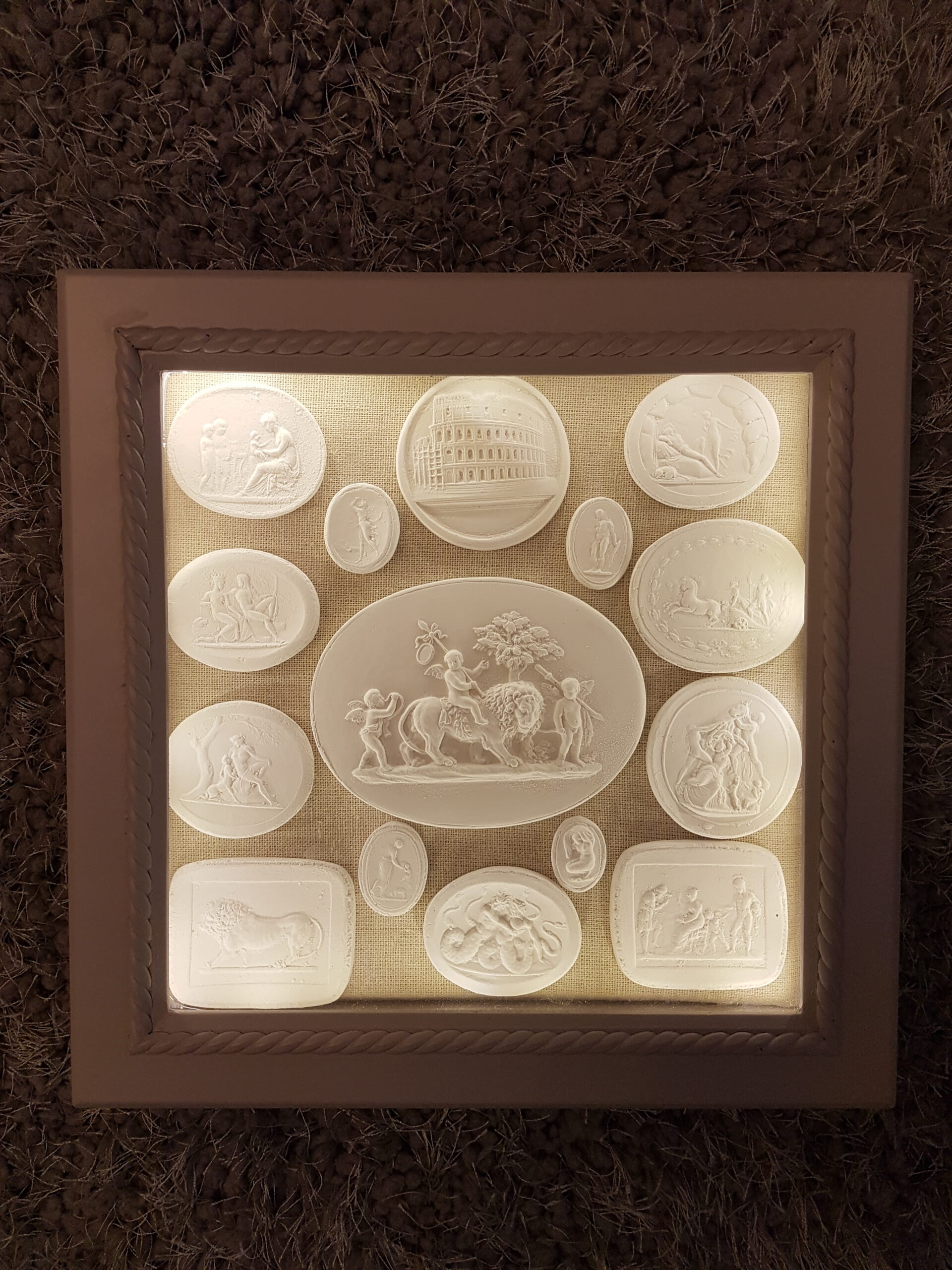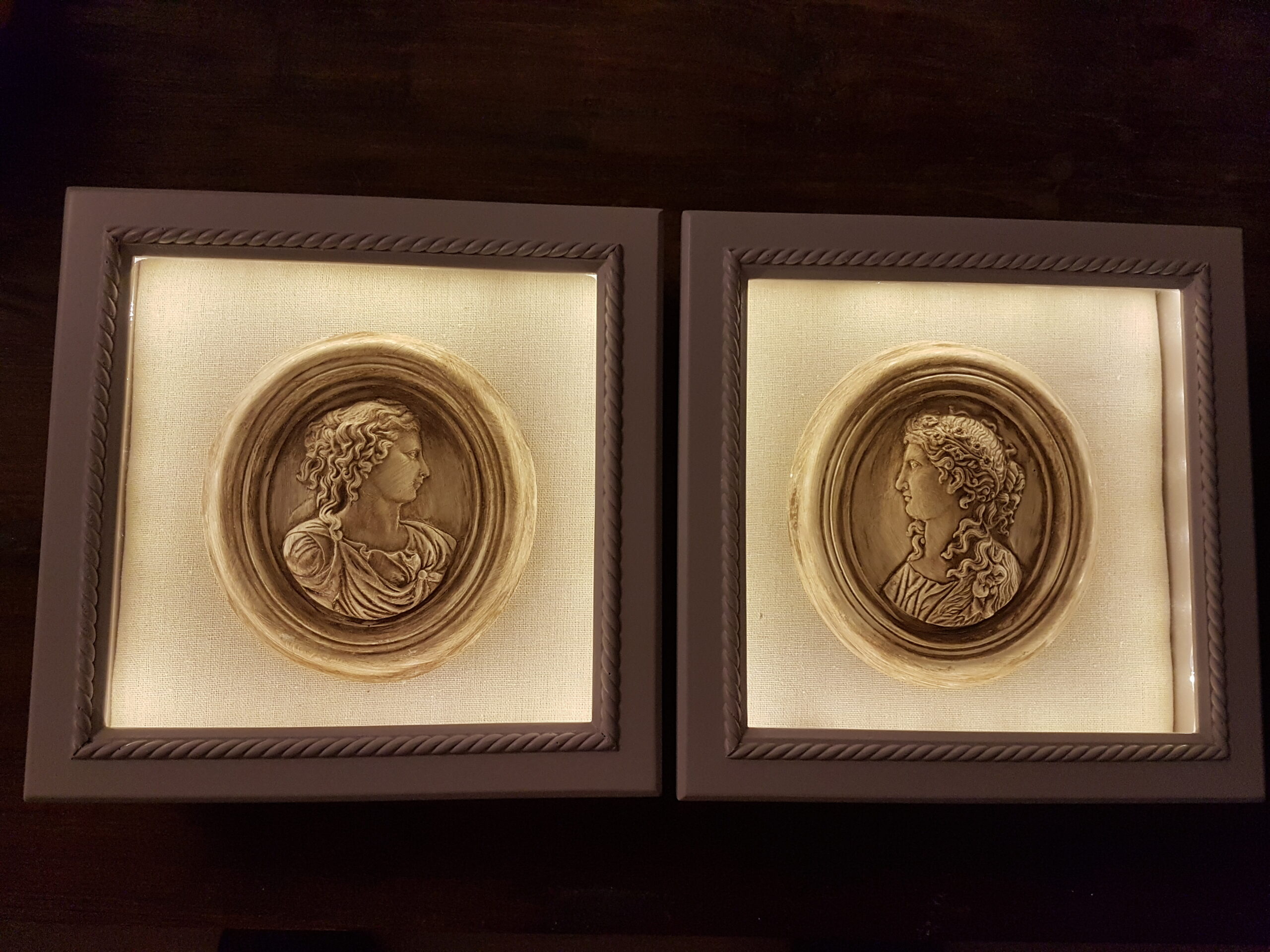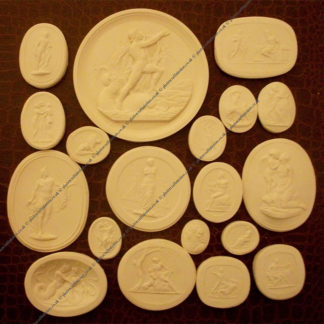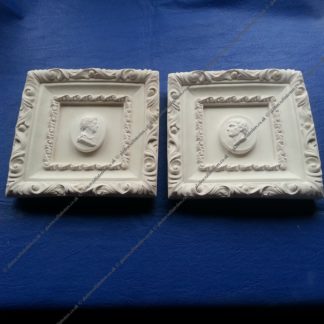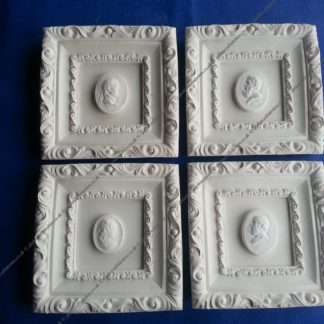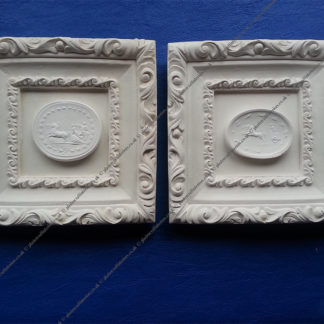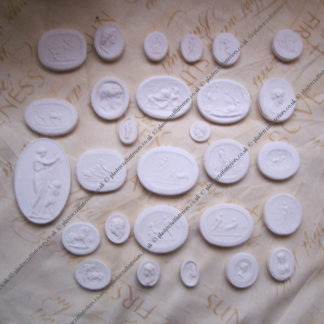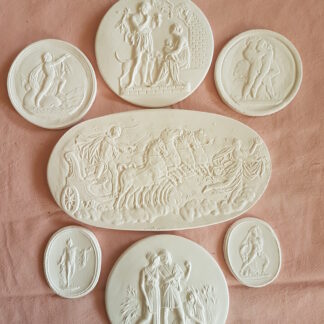Description
Intaglios were originally used as seals. These carvings or cuttings are moulded out of white plaster, marble dust or wax. The original 19th century intaglios were also made from wood or stone. The depressed designs depicting ancient scenes and figures from Greece and Italy. In particular, they were also used as markers for land. They were also collected as souvenirs from European Grand Tours in the first half of the 19th century.
The Grand Tour was the traditional trip of Europe undertaken by mainly upper-class European young men of means. The custom flourished from about 1660 until the advent of large-scale rail transit in the 1840s and was associated with a standard itinerary. It served as an educational rite of passage.
The primary value of the Grand Tour, it was believed, lay in the exposure to the cultural legacy of classical antiquity and the Renaissance as well as the aristocratic and fashionably polite society of the European continent.

